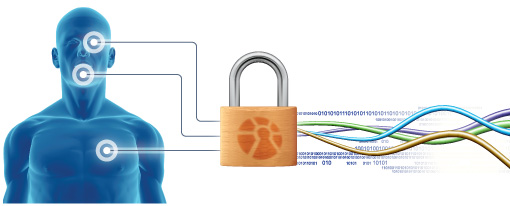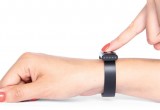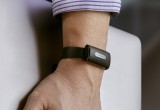Company Spotlight: Bionym, Inc.
16 May, 2013
category: Biometrics, Digital ID
A small Toronto start-up is pushing the limits of biometric identification by pioneering a modality that uses the human body’s unique electrocardiogram (ECG) pattern — a measure that varies based on heart size, shape and position in the body.
Founded in April of 2011, Bionym Inc. is a spin-off of the University of Toronto that was started by CEO Karl Martin and CTO Foteini Agrafioti— both PhD graduates from the university’s department of Electrical and Computer Engineering.
Bionym’s software and identification algorithm, dubbed HeartID, could see use in a variety of consumer-centric solutions. “Bionym is targeting end-user products mainly in the consumer space,” reveals Martin. “However, we recognize that there are relevant applications in enterprise, health care and government, and may target those in the future.”
HeartID is the vital piece to Bionym’s solution set, which looks provide convenience and security using the human body’s unique electrocardiogram (ECG) pattern. “ECG can be captured from various points on the body, including the fingers, hands, arms, chest and legs,” explains Martin.
Martin goes on to explain that there are two unique aspects of HeartID that cannot be found with other biometric modalities. “First, HeartID can be used to continuously authenticate a person while they are in contact with a sensor, rather than authentication at a single point in time,” says Martin. “Second, HeartID can be deployed so that the user doesn’t have to take any special action to conduct authentication — either embedded in a wearable device like a bracelet, or in a hand-held device, smartphone or tablet.”
With the number of implementations and verification devices, HeartID seems to be a viable solution for a wide variety of markets. “Our vision is to enable a seamless and secure user experience for the future of smart devices and environments,” says Martin.
According to Martin, Bionym plans to make its HeartID solution commercially available in two ways.
The first solution, Nymi, is a wristband that authenticates the wearer using HeartID. “It has an ECG sensor, Bluetooth, NFC and a motion sensor,” explains Martin. “It can be used to provide logical access to other devices and systems like smartphones, tablets, payment systems, physical access to vehicles and buildings as well as personalization of devices and environments— loading of preferences in smart environments and vehicles, etc.”
Martin explains that the motion sensor component of Nymi can be used to indicate user intent, that is, as you approach your car one motion can be used to open the driver’s side door while a different motion will open the trunk.
“Out of the box, Nymi offers three-factor authentication: 1) biometric, 2) possession of the wristband and 3) the close proximity of an authorized smartphone or tablet when the user first puts Nymi on,” reveals Martin. This pairing is only required at the time of set up and does not need to be present during later authentications. Nymi is only active whilst on the user’s wrist, and upon removing the bracelet, it goes into an unauthenticated state.
The Nymi is developer-friendly — providing identity, motion and proximity capability — with an open API and publicly available SDKS. Martin expects Nymi to be pre-launched this summer, with full launch scheduled for early 2014.
The second mode of HeartID will be a more straightforward software development kit (SDK). This mode will available for licensing and embedding into other devices and systems, utilizing off-the-shelf ECG sensors.
Martin and Bionym are mindful of HeartID’s future. Having previously partnered with Plessey Semiconductors, a vendor of high fidelity bio-sensors, the company is also in partnership discussions with several consumer electronic manufacturers for licensing of its HeartID technology.
Martin is rightly approaching the future with optimistic caution, but the company’s CEO has plans for diversifying the company portfolio. “As the Nymi is a first generation product, we will see how the market responds,” says Martin. “Our product launch will include a cloud back-end for managing user identity, and we will support third party integration with the platform.”
As is the case with any young start-up, however, there will be both challenges and opportunities along the way.
“Most of our challenges relate to the acceptance of a new biometric technology, and also simply the acceptance of biometrics in the consumer space,” explains Martin. “However, there is a clear opportunity in wearable devices, with consumers indicating an interest to try out new technologies in these new form factors.”
Provided the public is prepared to adopt a new form of biometric authentication and are keen on a wearable technology, the Nymi solution is sure to make waves this summer.
Confident that HeartID and Nymi will add a fresh, secure and unique option to the biometric fold, Martin and Bionym are leveraging trends in smart environments as well as the general interest to find compelling alternatives to passwords and PINs.




